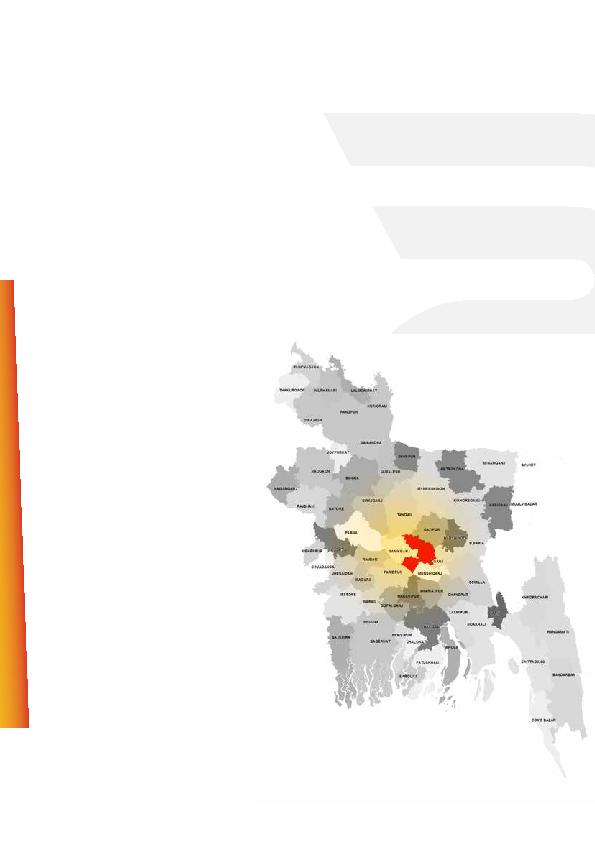
demands of its vast and growing population. Analysts
and industry experts have warned that Bangladesh's
current recoverable gas reserves of 463.3 billion m
new gas fields are discovered. The irony here is that
the country is considered to be a rich hunting ground
in terms of natural gas production; indeed, it could
one day become the region's most prolific producer.
It has simply lacked the technical infrastructure to take
advantage of its own vast natural resources.
(GTCL), under supervision of Petrobangla, has
responsibility for transmitting natural gas across
the country and ensuring that supply can continue
to meet demand. Formed in 1993, GTCL aims to
centralize the operations and maintenance of the
national gas grid and expand its network of pipelines
across the country. For an idea of its capabilities,
GTCL transmitted 15.3 billion m
the fiscal year 2011/12 and a total of 80 million litres
of condensate through its North-South Condensate
Pipeline (175 km) during the same period.
$4.3-million contract by GTCL to manage and
supervise the implementation of the Dhanua-Elenga
and West Bank of Bangabandhu Bridge-Nalka Gas
Transmission Pipeline.